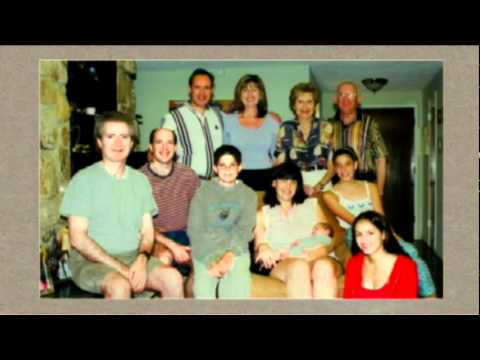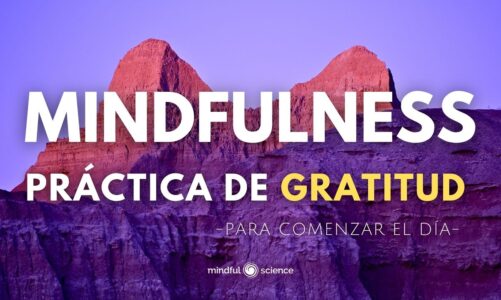TED
http://www.ted.com After a catastrophic car accident that left him in a coma, Simon Lewis found ways to recover — physically and mentally — beyond all expectations. At the INK Conference he tells how this remarkable story led him to concern over all threats to consciousness, and how to overcome them.
TEDTalks is a daily video podcast of the best talks and performances from the TED Conference, where the world’s leading thinkers and doers give the talk of their lives in 18 minutes. Featured speakers have included Al Gore on climate change, Philippe Starck on design, Jill Bolte Taylor on observing her own stroke, Nicholas Negroponte on One Laptop per Child, Jane Goodall on chimpanzees, Bill Gates on malaria and mosquitoes, Pattie Maes on the “Sixth Sense” wearable tech, and “Lost” producer JJ Abrams on the allure of mystery. TED stands for Technology, Entertainment, Design, and TEDTalks cover these topics as well as science, business, development and the arts. Closed captions and translated subtitles in a variety of languages are now available on TED.com, at http://www.ted.com/translate.
Source




Thank you
I am surprised that many comments below are dismissive or depreciative. I find Mr. Lewis greatly inspirational. He confronts us with the issues of escalating medical problems, and even more with the responsibility for climate change. He implies that falling headfirst into computers and smart phones is not the way, but consciousness is. Simon Lewis is valuable. I hope his influence expands more and more.
por que pones el titulo es espanol?
Thumbs down for calling depression a "disease" and a "disability".
The average teenager sends 3300 texts every day? I think not!
Neither do you.
Wow, you're RIGHT.
Gosh, even a device to record "every step" that he takes. Is he being used as a guinea pig for personal surveillance technology?
Interesting that this talk includes three main elements of Illuminati conspiracy theory: Cedar Sinai hospital, eye of Horus, "microstimulator" implants…. hmmmnnn… His final conclusion is "I believe we can all rise and shine." was anyone saying we can't?
I don't think you understand how statistics work.
Definitely possible. if you do 5 texts a minute for 10 hours you get 3000 texts.
3300 texts a day? I'am starting to see the problems with this guys head injury.
Consciousness is such a strange amazing thing, I'am so blessed to be a living breathing human being that's self aware in the best time in human history.
Must be nice, having all the answers about consciousness! Good thing for youtube comments sections, or none of you would have a chance to spread your wisdom!
…
Consciousness is most certainly a created entity – very easily mixed up or confused with existence. If you are very aware you notice how it arises and disappears moment from moment. Many times a day you are not conscious at all or only partial conscious. It is like the blind spot in your vision: mind/brain fills in the gap thereby creating an illusion of continuity.
3300 texts a day? i definitely don't think so… surely that's near enough impossible?
well done to everyone envolved. the presentation seemed a bit off (just me maybe) and wow, how much money did the family have? great job everyone involved hope it becomes mainstream.
6:34 "the average teenager sends 3300 texts…everyday." whoa.
@ert00034 He kinda stuttered at that number.. Wonder if he meant to say 330 texts, lol.
@theSHITIFYRE LOL
@ddunniii that is not right you see. The man said he works in the television and he has no medical degree or something like that. SO this minor mistakes are mistakes everyone would make. Furthermore some of things he said were his personal experiences during his coma and recovery time, so saying that you cant believe him because he does not know how PET operates is stupid and out of place.And the fact that he is there standing after what he gone trough is more than a reason to listen to him.
@morthim You don't believe that the eye is the main attribute to conciousness? I suggest painting two huge eyes on to your bedroom wall, and phsyically will yourself not to freak out when you walk in, or wake up and forget that they are there. You will be amazed to find that hard-wired in us through millenia of evolution, that the eye is the one thing we connect to a "mind". I just did a year long research and design project on the eye, so it is what it is.
did he just sat that an average teenager sends 3300 texts?
There are a lot of generalizations and incorrect statements in this…
I couldn't listen to him any longer after he said "the average teenager sends 3300 texts a day"…
This is only for the rich… 🙁
the guy had his brain put and a blender and poured back in his skull in a car accident then rebuilt his brain from non functional to fairly eloquent are you complaining about a mispronounced name. You would complain if a wizard waived a wand curing all disease in the world but you didn't like the color robe he was wearing
To correct you, I show a clearly labelled SPECT (single photon emission computed tomography) not a PET. There is a description of SPECT in the Glossary of my book Rise and Shine and accompanying narrative when I undergo one. Also, I state that there are no nerves "on" the teeth, i.e. on their surface which is accurate. There are many nerves" in" teeth, hence anesthetic is necessary for root canals, but not on their outer surface. Hope this is useful. simon
OAHMGEEEEE HUMAN REVOLUTION IS HERE!
(DEUS EX :D)
@tayloreh use of the word "addiction" is very dangerous, because then it becomes pathological, you then have to be institutionalized and/or drugged to be treated, i don't think this should apply to any form of computer use, no matter how obsessive it is.
6:35 Where the HELL are you getting your stats?! I know no one who sends that much! to put that in perspective, that's 3300/18 hours (awake) / 60 minutes = 3 texts per minute nonstop every minute of your waking day. I HIGHLY disbelieve thats an average. (This is where i stopped watching the video…)
sadness is one part of it, as is anger, etc, but it definitely is not a disease, it's more a coping mechanism for feelings.
'The average teenager sends thirty-three hundred texts everyday'
Was probably an honest mistake but there wasn't much clarity in the rest of the talk so I skipped to the next Ted Talks vid, like a boss
He's lost his heart and so he glorifies the mind.
Aww.. I was expecting Simon AND Lewis